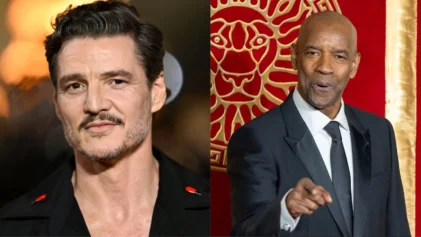Denzel Washington’s Flight has received strong reviews, despite accusations of a melodramatic script and moral ambiguity, due to Washington’s powerful performance as pilot Whip Whitaker. The film follows Washington’s character, a man who abuses both alcohol and drugs, as he is forced to make an emergency landing. Directed by Robert Zemeckis, whose previous projects include Back to the Future, Cast Away and Forrest Gump.
Flight opens in theaters this Friday, competing with Disney’s Wreck It Ralph and The Man With the Iron Fists, directed by The RZA. Washington is joined by John Goodman and Don Cheadle, but carries the weight of the film on his shoulders as Whitaker is investigated for his role in the plane’s crash landing. Whip is celebrated by the public for pulling the aircraft out of a nosedive and saving dozens of lives, but the audience is left to wonder whether or not his reckless substance abuse and attitude were responsible in the first place. It is here that the film falls into the realm of moral ambiguity, as NPR’s Scott Tobias explains.
“Though Washington’s charisma — to say nothing of the fact that Whip did save his passengers where other pilots would have failed — does much to secure the audience’s sympathy, the film commits to circling the drain with him, and it gets ugly, especially when Whip and his handlers lobby for a plan to bury a damning toxicology report.”
Beyond Washington’s performance, critics also praised Zemeckis’s realistic depiction of a plane crash, a scene he’s had practice with in Cast Away.
“The accident in Flight is freakishly real; it’s one of those big-screen nightmares that will inspire fear-of-flying moviegoers to run home and Google car rental deals and Greyhound schedules,” said Manohla Dargis of the New York Times. “It’s a showstopper, with thrashing inverted bodies amid sickening screams and engine noises.”
Flight may not go down as one of Washington’s most memorable films, but he carries the movie in a way that almost no other actor can, giving validity to a character that would otherwise prove un-relatable.


